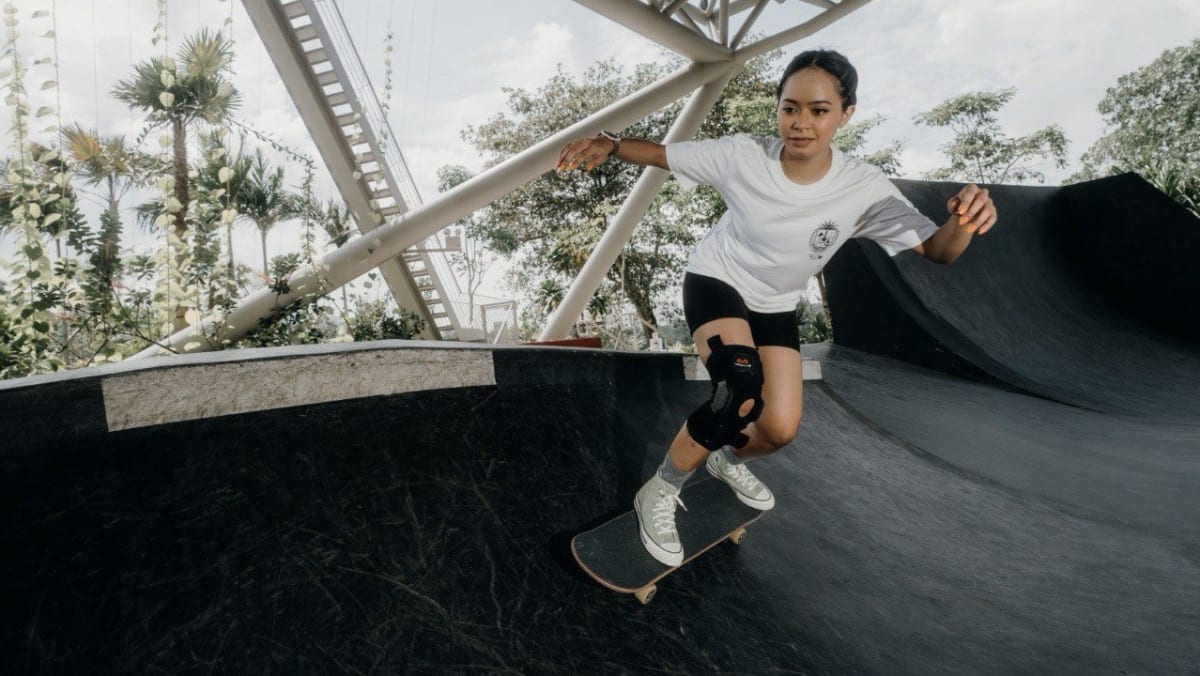
When she was a teenager, skateboarder Arina Azain remembers the police coming over to the basketball court where she and her friends were practising their tricks, to tell them they were too noisy. Residents in the surrounding blocks had likely made a complaint.
Her own mum too, had warned her that skateboarding was “where all the druggies and bad kids gather”. All untrue, said Arina.
Even though skateboarding officially became an Olympic sport in the 2020 Summer Olympics, which was held in Tokyo in 2021 due to COVID-19, it has always been viewed differently from other sports like tennis, gymnastics or fencing.
First conceived around the 1940s or 1950s as a way for surfers to practice on land, skateboarding has a reputation for attracting the renegade crowd – the youth subculture is strongly associated with individuality, self-expression, and often, rebellion.
As a result, the skateboarding community did not always have a good standing within the wider community.
But perhaps precisely because of this, Arina identified strongly with this misunderstood group. She was then an unhappy teenager who felt like “a misfit in the world of norms”.
“I was brought up by separated parents and wasn’t close to my family. When I was a kid, I felt abandoned,” the 27-year-old said.
